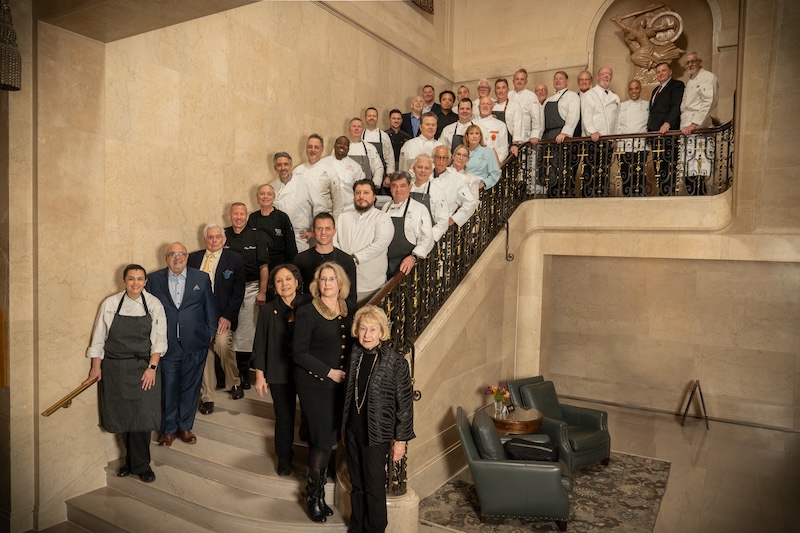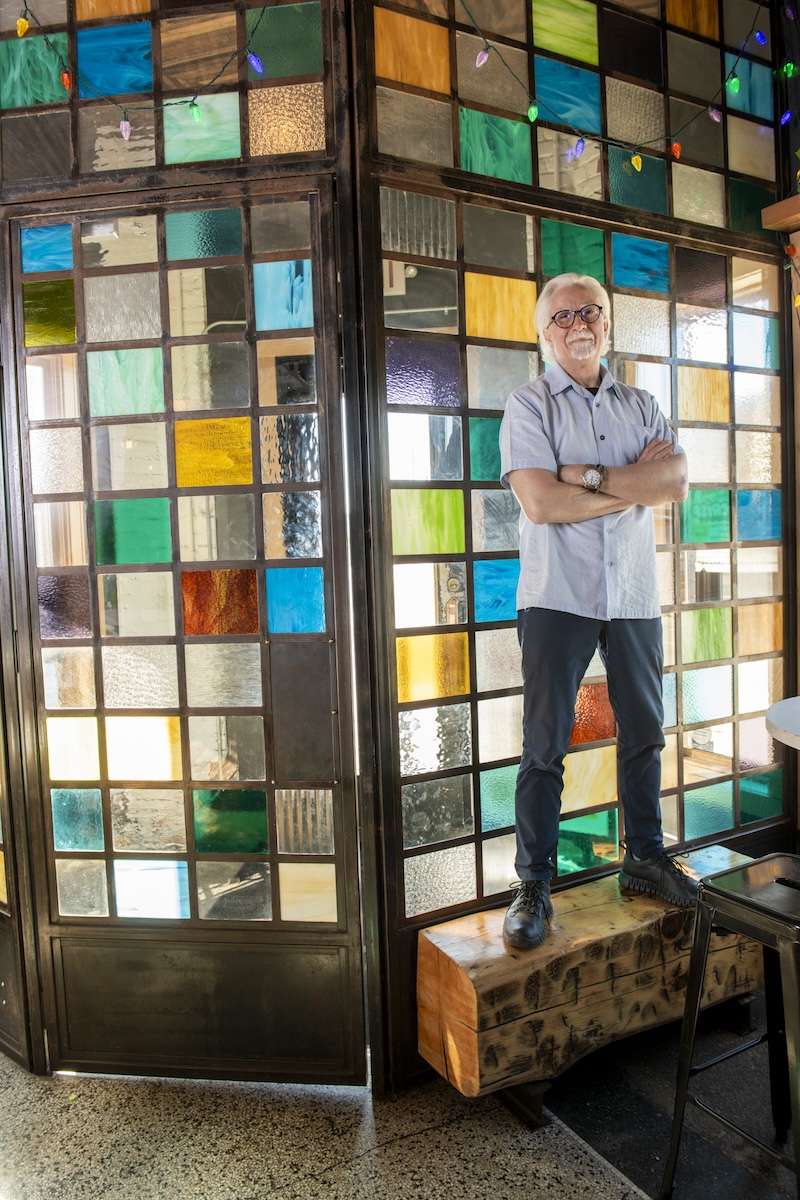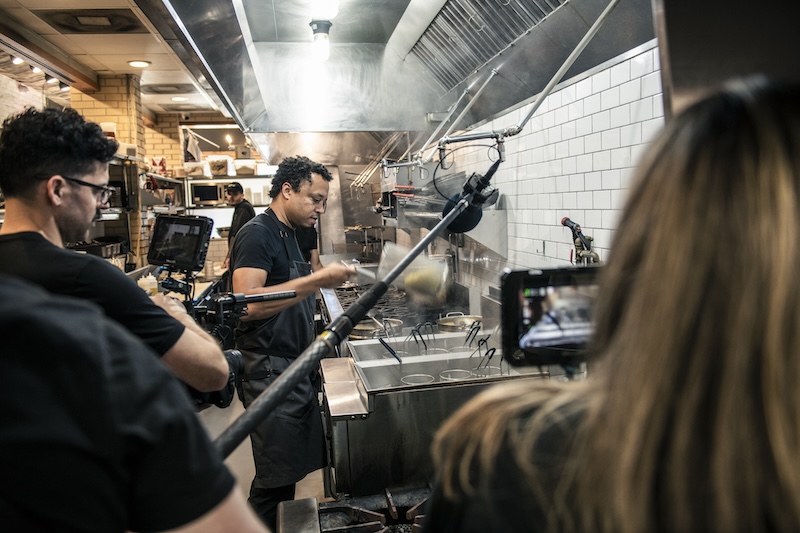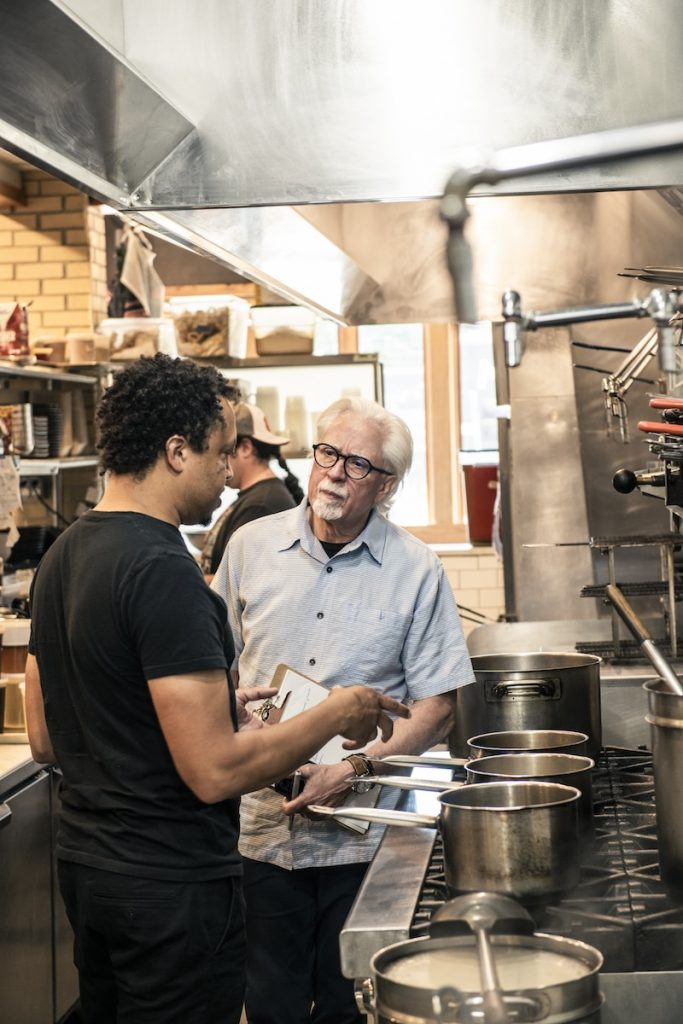Keith Famie is really putting this 84-year-old man through his paces. Itтs like an acuity test for seniors.
When the gentleman begins to answer one of his questions, Famie stops him. тIтm going to ask you that question again, and mention how you got to Detroit, and why Detroit,т he instructs.
Moments later, Famie breaks in again. тJust because I have a short window of time with you today, what was your first impression of Detroit?т
тOh. Iтm sorry,т the gentleman replies.
тNo, youтre OK,т Famie says, тas long as you donтt mind if I stop you once in a while.т
The gentleman is Sameer Eid, founder and owner since 1971 of Birminghamтs restaurant, one of the longest-running and most famous Lebanese-American restaurants in metro Detroit. While Eidтs son, Samy, handles most of the business affairs now, Sameer still comes in regularly to chat with diners who have been his customers for decades. And when Famie learns Sameer arrived at the restaurant that day in his vintage white т60s Corvette convertible, he can hardly contain himself.
Ь§
тSameer, can we get you to go back out to your car, pull out of the driveway, then drive back in and park so we can see you arriving?т
Bizarre request, but Sameer graciously complies. Thatтs because he knows Famie, the award-winning Detroit celebrity chef turned multi-Michigan Emmy Award-winning producer-director, is filming him for his upcoming series . The docuseries (originally intended to be a documentary film) is set to premiere Dec. 9 at the before airing the following night on .
тYou see stories like his and it gives me hope,т Famie says while savoring the sumptuous lunch Phoenicia prepared for him and his crew.
тIтm 64 now and still driving this train, but heтs still relevant. And for me to be able to shine a light on individuals like Sameer, to remind future generations or even current generations of their contributions, Iтm excited. He deserves this time in his life. The film focuses on young people, too, but I feel like an ambassador.т
Sameer is one of at least 60 interviewees Famie will film for his latest production, which traces and celebrates the rich history of Detroitтs culinary industry т with every ethnic group from the Italians and Polish to the Greeks and Arab Americans contributing to the cityтs entrУЉe excellence т and highlights the new generation of chefs striving to carry on our kitchen tradition.
And itтs guaranteed that every interview will be as meticulous, impassioned, and flexible as this morningтs with Sameer. Thatтs just who Keith Famie is.

тHeтs relentless,т marvels Fred Nahhat, senior vice president for production at Detroit PBS and Famieтs broadcast partner through nearly 18 years and more than 20 televised films hailing Detroit as the home of churches, hot rods, and many things in between. тIt might come from that ethos as a chef. When you think of him back in the day at Chez Raphael, Les Auteurs, and other places I wasnтt making the money to afford, thatтs what he was like then.
тBut I wouldnтt paint him as esoteric,т Nahhat explains. тHeтs very accessible. Heтs a Detroit storyteller. Heтs a hard worker, innovative, and he never stops. Heтs a blue-collar filmmaker, and I mean that in the best way possible. Thereтs nothing but honesty coming out of his projects, and thatтs pretty unique. At least once a week, I tell a filmmaker who wants to get on the air here, тGo talk to Keith. Get some advice from him.тт
That advice might include taking an honest look at the production being developed. тI look at four things when I step into any project, and all four have to work in sync or these things collapse,т Famie explains. тWhoтs going to care about it? How is it going to help somebody in some way? Where is it going to be shown, and whoтs going to pay for it? If you say, тIтm making a film, but Iтm not sure what itтs going to be,т or you donтt have a place to air it, nobodyтs going to fund it. And these things are really expensive to make.т
His long partnership with Detroit PBS helps assure potential funders that his films will be seen. But is Detroit really the city of chefs? Obviously, Famie thinks so: He notes that there were once more certified master chefs in Michigan, 11, than anywhere else in the nation, most of them in metro Detroit. One of them, master chef Ed Janos of and Money Tree legend, thinks it goes deeper than that.
тI didnтt realize it until I moved away,т says Janos, a Detroit native now based in Denver who stood up with Famie at his wedding. тIt was just such a tight, tight culture. We werenтt afraid to share secrets and recipes and ideas with one another. It was just such a camaraderie, and I developed great friendships with fellow chefs. Iтve been fortunate to cook in many places in the U.S., and thereтs not the camaraderie I experienced in Detroit.т

Famie believes thereтs a direct correlation between the automotive industry and the rise of superior chefs here. тDetroit was always considered kind of a тflyover city,т but auto execs were traveling all over the world,т he says. тThey may dine in downtown Chicago or New York, and their expectation level is only as high as it is for that moment. But the restaurants here deal with the same customers over and over, so the quality and consistency has to be at a very high level. I donтt want to say Detroitтs culinary community works harder than anyone else in the country, but they work damn hard.т
Between his culinary celebrity and second career in filmmaking, Famie achieved a measure of national notoriety appearing as a contestant on CBSтs Survivor: The Australian Outback in 2001, eventually finishing third overall. The reality series not only beat out Friends in its time slot but also was the highest-rated show on TV that season.
The series did elevate his national profile enough to land him a series on Food Network, , and shows and appearances on Detroit TV as well. But ultimately, тthe Survivor thing put such a magnifying glass on your life and everything, I was totally fine with, тLetтs step behind the camera,тт Famie recalls. тI mean, when youтre on a reality show, you have to grow a very thick skin. I enjoyed being invisible, and telling other peopleтs stories allowed me to do that.т
In 1998, he launched Visionalist Entertainment Productions. Whatтs тVisionalistт т a word he coined himself т supposed to mean? тNobody asks me that anymore,т Famie says with a smile. тBut thereтs a story behind it. Years ago, I read a saying: тTo dream is to fantasize; to visualize is to expect.т The point is, you cannot do anything without visualization.
тAs a chef, you walk through a market, see a cut of meat, and say, тIтm going to make that tonight.т Youтre already visualizing the outcome. When I created the name, people said, тThat means nothing.т I said, тIt means everything.т Sometimes with films I have to wait a long time to get just the right clip. I already know where itтs going in the film. So much of what we do in the field is about that visualization, seeing where we want to go with our project. Weтre visionalists.т
And with that vision come certain guiding principles when Famie is on location. тI have a very strict narrative to my filmmaking: See it, say it; say it, see it,т he says. тIf I donтt have the visuals to tell the story, then we have to let it go. Another point I stress with my crew is, the story weтre going to tell is not always the story weтre going to tell. The film we aired last year, , ended up with a story about Parkinsonтs disease because we found a woman who continued to cruise despite being in stage 4. You never know how these things will work out, so you have to be flexible.т
Famie didnтt visualize how difficult the transition from chef to cinema would be. тIt was economic suicide, for sure,т he says, laughing now. тEveryone in my family thought I had lost my mind. Every time I would walk into an interview, someone would say, тWhere are you cooking now? Where is your restaurant?т Iтd respond, тOh, Iтm producing now.т
ттHow do you know how to do that?т they would ask. Iтd tell them, тI already knew how from my food things.т It wasnтt a stretch; it was just a pivot.т
Famie pivots a lot. Heтs a producer and a fundraiser, and while his director of photography, Brendan Martin, has done the majority of editing on his recent films, Famie is part of the process. City of Chefs will include stop-motion animation sequences, which he commissioned, produced by students at the College for Creative Studies and scenes from the one-time Legends of the Stove charity event, which he organized, at the Detroit Athletic Club. And practically every film Famie produces is accompanied by a companion book тІ which he writes. Heтs a man in constant motion, which comes as no surprise to chef Brian Polcyn, Famieтs friend since high school.
тHeтs always been like that ever since I can remember,т says Polcyn, a nationally known charcuterie expert whose new cookbook Meat Pies comes out this fall. тThatтs just his personality. Even when he was a chef, he always had something else going on. I equate it to fishing on a pier: Iтd have one line in the water, and he would have nine. But he seems to have found his niche, which is good.т
But why a series about chefs now, after almost 20 years of focusing on so many other subjects? тI donтt really have a good answer for that, other than Iтve always wanted to tell this story,т Famie muses. тIтve always understood the importance of our culinary heritage, and I had a conversation with Brian Polcyn that made me say, тI think itтs time to dive into this.т I guess maybe in a subconscious way I was reflecting upon where I came from personally. I started seeing other chefs getting older, falling off the radar screen, and thought it was time.т
He had other stories to tell first. тIтm always looking for, тHow is this story going to affect someone? How is it going to make people think about their own lives, or gain a perspective? Change a paradigm of thinking about other people, or humanity itself?т Thatтs the jazz for me.т
This story originally appeared in the August 2024 issue of ЬЧаФvlogАВзПАц. To read more, pick up a copy of ЬЧаФvlogАВзПАц Detroit at a local retail outlet. Our will be available on Aug. 6.
|
| Ь§ |
|













